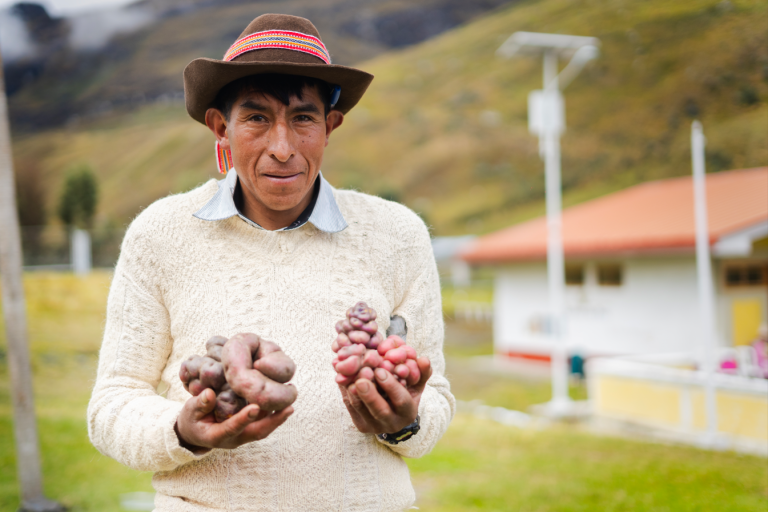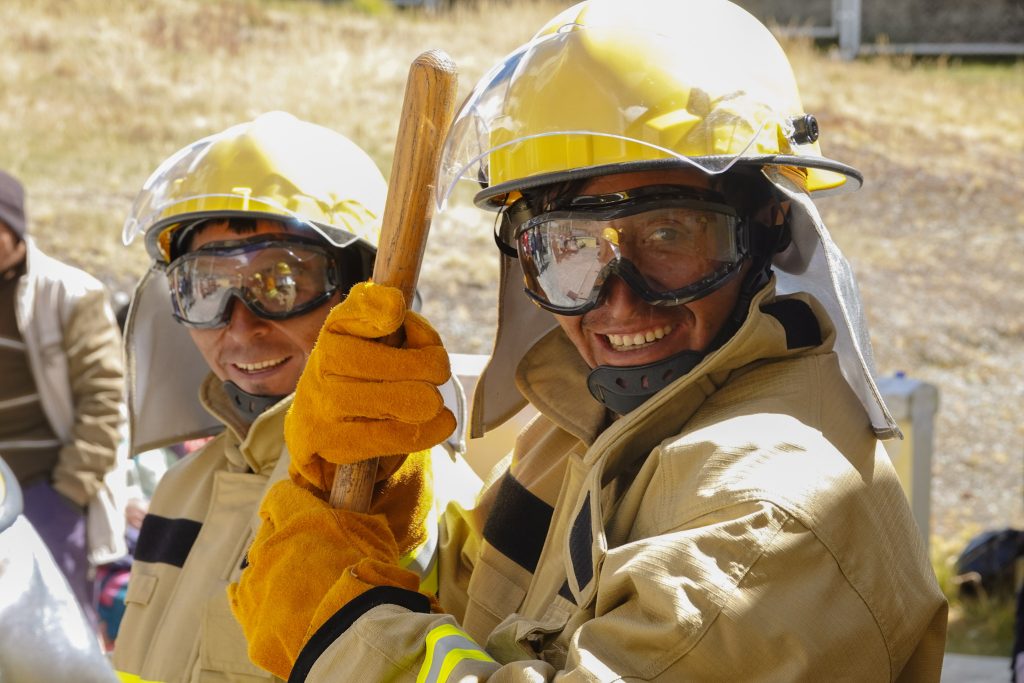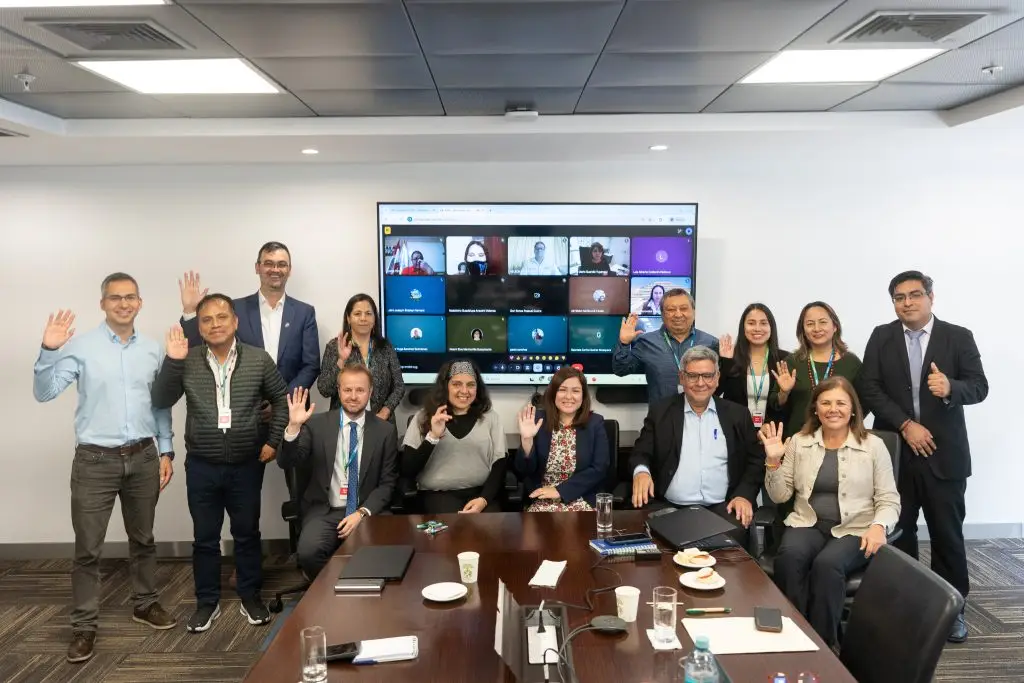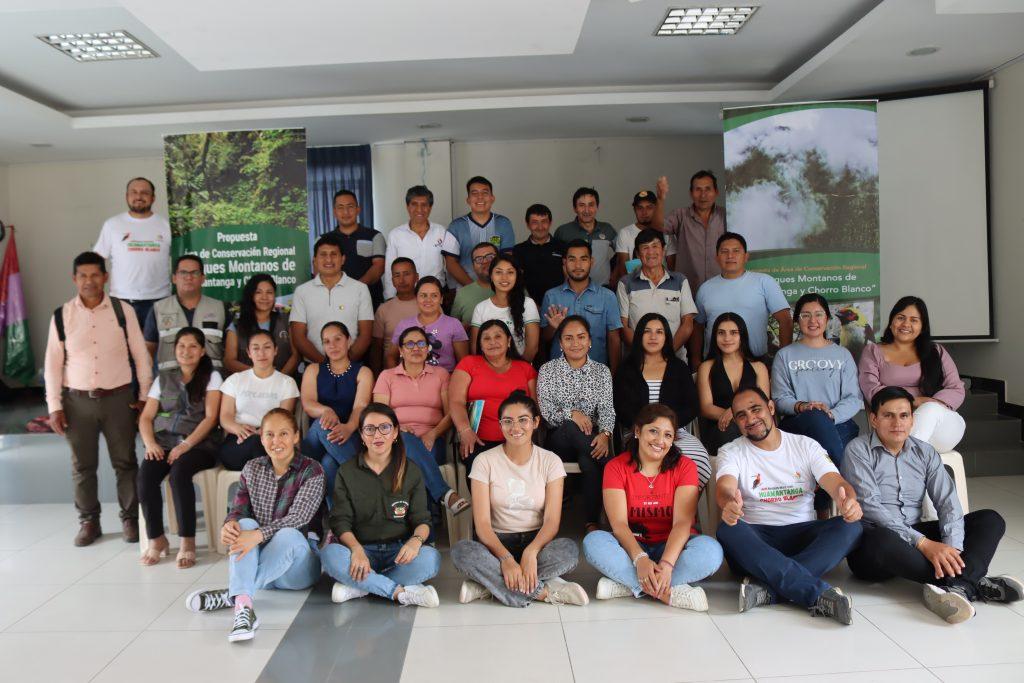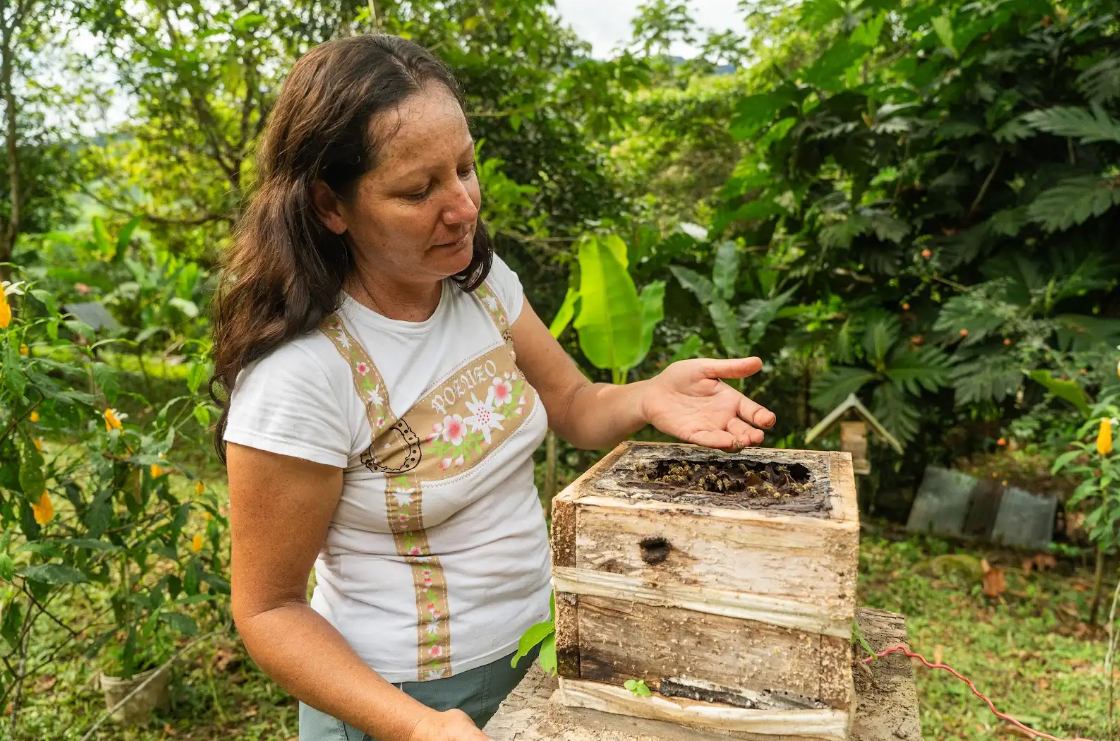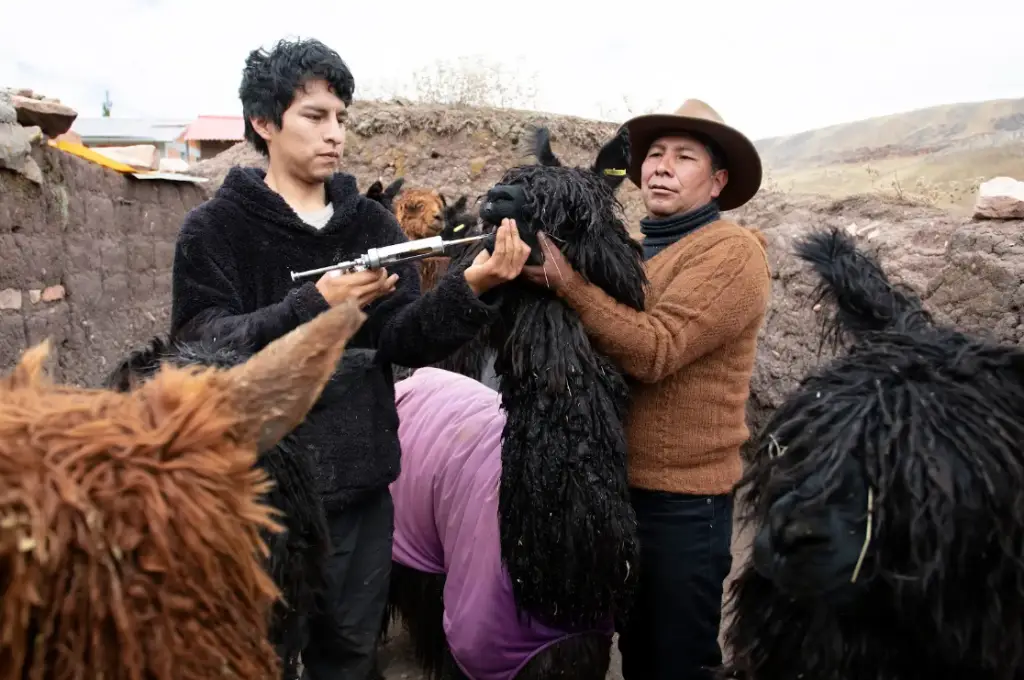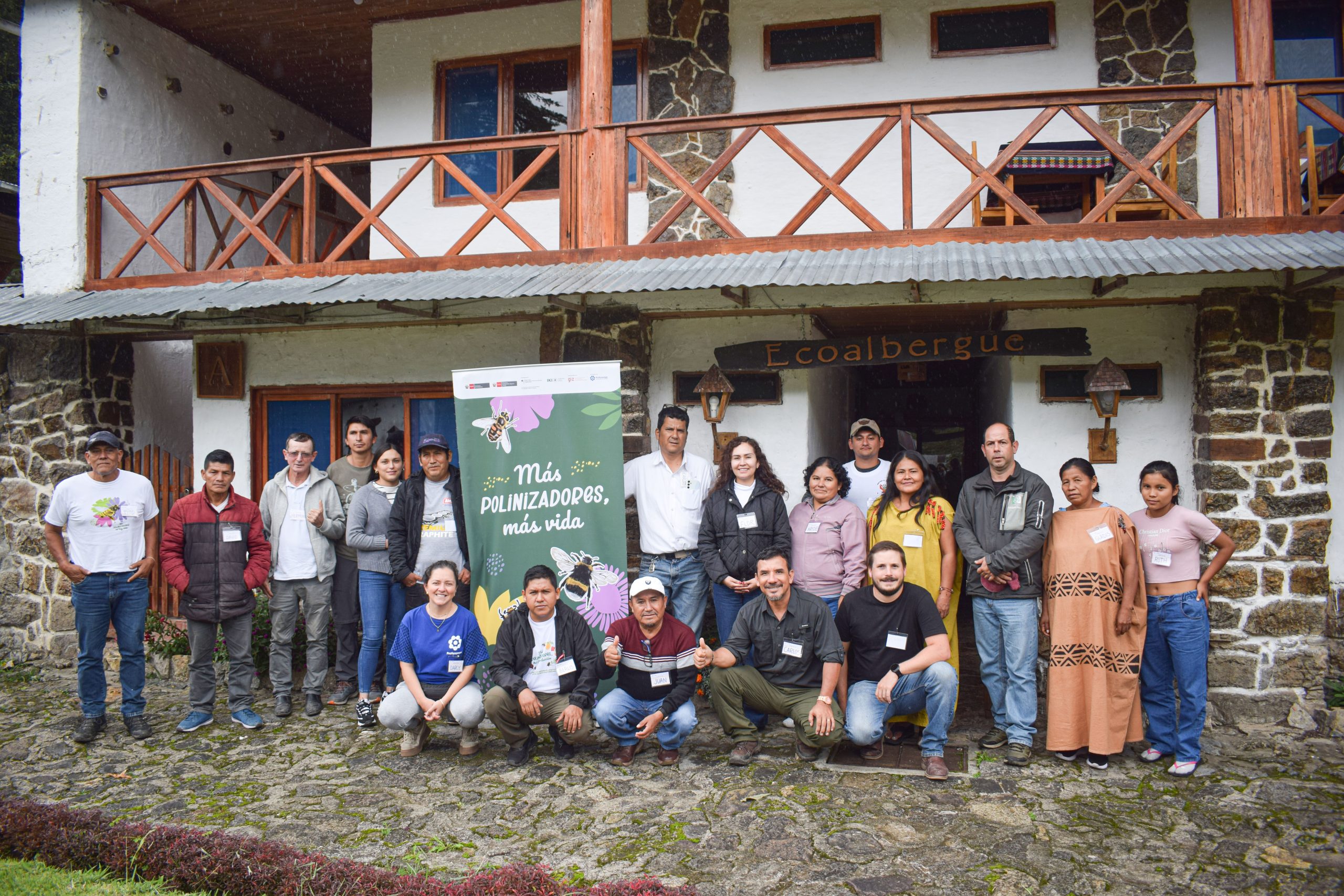The Huánuco peasant community belongs to the Quechua indigenous people and is located in the Andamarca district, Concepción province, Junín.
© Gerson Ferrer | Yunkawasi
At an altitude of over 4,000 meters in the heart of the Junín Andes, the Huánuco peasant community celebrated its II Native Potato Festival. It was a day of pride, tradition, and ancestral knowledge that brought together various entities to disseminate and celebrate the dozens of native potato varieties conserved by this locality, situated within the proposed San Cristóbal de Pucutá – Menkori Regional Conservation Area (RCA).
The event took place within the framework of the PAIS Program’s Multisectoral Fair, where more than ten public and private institutions provided social services and cultural activities to the population. The day served to highlight the central role of peasant families as guardians of agrobiodiversity, as well as the potential of their traditional practices in the face of the effects of the climate crisis.
“We have types of potatoes for different uses; some are better for our consumption, others for drying, others are more suitable for commerce because of their price; the good thing is that we still have many in our community,” explained Lucho Camarena, a resident of Huánuco who displayed over 80 varieties on his plot, during his presentation.
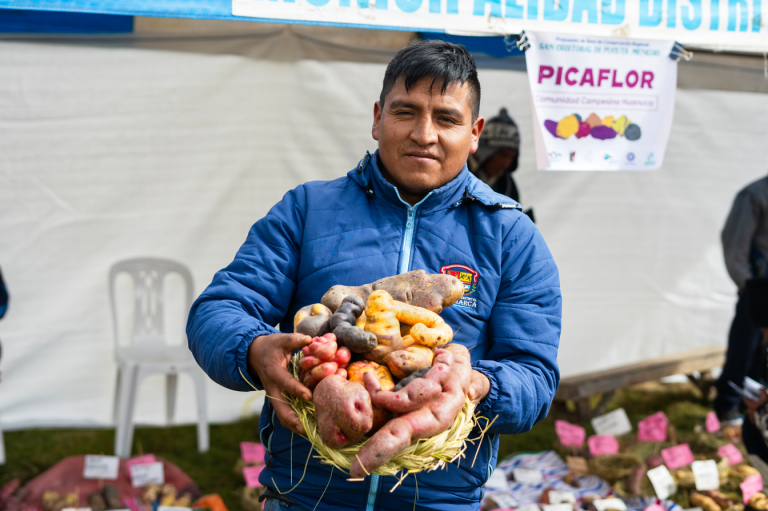
Lucho Camarena, a resident of the Huánuco peasant community, exhibits one of the more than 80 varieties of native potatoes conserved by his family.
© Gerson Ferrer | Yunkawasi
During the festival, community members exhibited an extraordinary variety of potatoes of different sizes, shapes, and colors. Many of these are cultivated in small family plots and are kept alive thanks to knowledge passed down through generations. The neighborhoods of Godopampa, Centro, Yunkanbado, and Unión Progreso collectively presented more than 100 distinct varieties, reflecting their commitment to conserving this diversity and their ancestral knowledge.
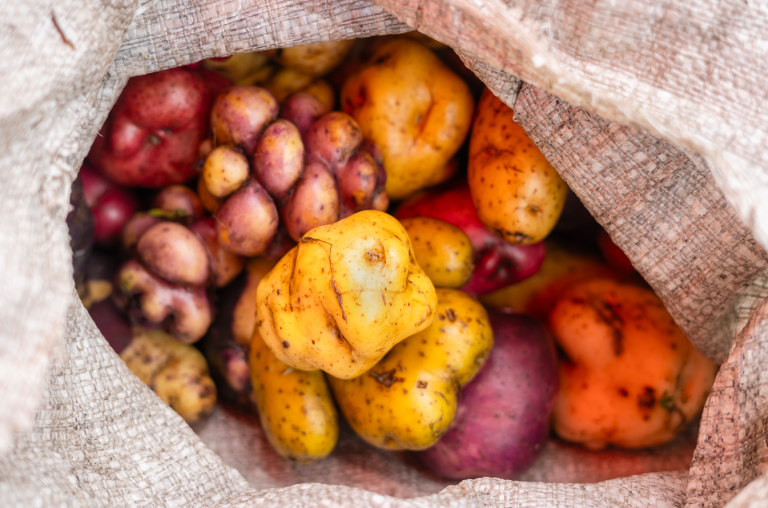
Among the native potatoes most frequently traded in the community are the varieties known as amarilla, huayro, saca, shaulina, and huamantanga.
© Gerson Ferrer | Yunkawasi
This diversity is not only an invaluable genetic treasure for the world but also represents a fundamental basis for food sovereignty in the high-Andean communities.
Conservation from the Territory
The Huánuco community is part of the area encompassed by the proposed San Cristóbal de Pucutá – Menkori RCA—an initiative led by the Regional Management of Natural Resources and Environmental Management of the Junín Regional Government. It seeks to conserve over 60,000 hectares of key ecosystems in the provinces of Satipo and Concepción. This area includes cloud forests, grasslands (pajonales), high-Andean lagoons, and vital headwaters for the Mantaro and Perené river basins.
The II Native Potato Festival is part of the informational process for this protected area initiative, which aims to highlight the agroecological wealth that local communities protect. The proposed RCA has the technical and financial support of Profonanpe, Yunkawasi, Rainforest Trust, Andes Amazon Fund, and the Conserva Aves Initiative.
Thanks to the project, “Participatory Conservation of the Tropical Andes in the Junín Department – Peru,” financed by the Conserva Aves Initiative and implemented by Yunkawasi in partnership with the Junín Regional Government, this type of initiative will continue to be promoted, integrating culture, sustainability, and well-being for local populations.
The Conserva Aves Initiative is led by American Bird Conservancy (ABC), National Audubon Society (Audubon), Bird Life International, Birds Canada, and the Latin American and Caribbean Environmental Funds Network (RedLAC). The national partners are Profonanpe and ECOAN, leaders of the execution in Peru, with funding from the Bezos Earth Fund.
Press Contact:
Gerson Ferrer | gferrer@yunkawasiperu.org | +51 945 690 022


